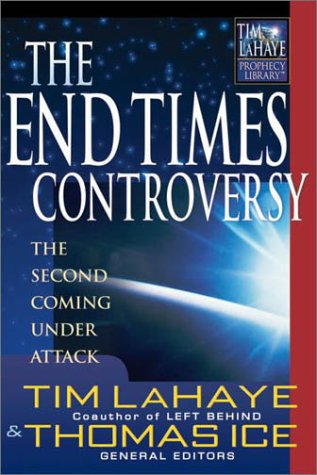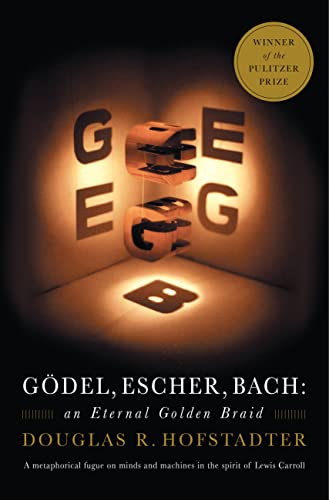Non-Fiction Thatll Make You Think
Explore thought-provoking non-fiction books that challenge perspectives and inspire deep reflection. Discover must-read titles that expand your mind and spark meaningful conversations.

Book
Underworld
by Graham Hancock
What secrets lie beneath the deep blue sea? Underworld takes you on a remarkable journey to the bottom of the ocean in a thrilling hunt for ancient ruins that have never been found—until now. In this explosive new work of archaeological detection, bestselling author and renowned explorer Graham Hancock embarks on a captivating underwater voyage to find the ruins of a mythical lost civilization hidden for thousands of years beneath the world’s oceans. Guided by cutting-edge science, innovative computer-mapping techniques, and the latest archaeological scholarship, Hancock examines the mystery at the end of the last Ice Age and delivers astonishing revelations that challenge our long-held views about the existence of a sunken universe built on the ocean floor. Filled with exhilarating accounts of his own participation in dives off the coast of Japan, as well as in the Mediterranean, the Atlantic, and the Arabian Sea, we watch as Hancock discovers underwater ruins exactly where the ancient myths say they should be—submerged kingdoms that archaeologists never thought existed. You will be captivated by Underworld, a provocative book that is both a compelling piece of hard evidence for a fascinating forgotten episode in human history and a completely new explanation for the origins of civilization as we know it.

Book
Lost Discoveries
by Dick Teresi
Boldly challenging conventional wisdom, acclaimed science writer and Omni magazine cofounder Dick Teresi traces the origins of contemporary science back to their ancient roots in an eye-opening account and landmark work. This innovative history proves once and for all that the roots of modern science were established centuries, and in some instances millennia, before the births of Copernicus, Galileo, and Newton. In this enlightening, entertaining, and important book, Teresi describes many discoveries from all over the non-Western world -- Sumeria, Babylon, Egypt, India, China, Africa, Arab nations, the Americas, and the Pacific islands -- that equaled and often surpassed Greek and European learning in the fields of mathematics, astronomy, cosmology, physics, geology, chemistry, and technology. The first extensive and authoritative multicultural history of science written for a popular audience, Lost Discoveries fills a critical void in our scientific, cultural, and intellectual history and is destined to become a classic in its field.

Book
Ancient Mysteries
by Peter James
For centuries, philosophers, scientists, and charlatans have attempted to decipher the baffling mysteries of our past, from Stonehenge to the lost continent of Atlantis. Today, however, DNA testing, radiocarbon dating, and other cutting-edge investigative tools, together with a healthy dose of common sense, are guiding us closer to the truth. Now historian Peter James and archaeologist Nick Thorpe tackle these age-old conundrums, presenting the latest information from the scientific community–and the most startling challenges to traditional explanations of mysteries such as: • The rise and fall of the Maya • A lost cache of Dead Sea Scrolls • The curse of Tutankhamun • The devastation of Sodom and Gomorrah • The Nazca Lines and the Vinland Map • The existence of Robin Hood These true mystery stories twist and turn like a good whodunit, as James and Thorpe present the evidence for and against the expert theories, shedding new light on humankind’s age-old struggle to make sense of the past. Ancient Mysteries will entertain and enlighten, delight the curious and inform the serious.

Book
The End Times Controversy
by Tim F. LaHaye
The author of the Left Behind(series, teams up with a noted prophecy expert to provide guidelines for interpreting Bible prophecy in a consistently accurate manner, equipping readers with a concise understanding of what the Bible says about the future.

Book
Forbidden History
by J. Douglas Kenyon
Challenges the scientific theories on the establishment of civilization and technology • Contains 42 essays by 17 key thinkers in the fields of alternative science and history, including Christopher Dunn, Frank Joseph, Will Hart, Rand Flem-Ath, and Moira Timms • Edited by Atlantis Rising publisher, J. Douglas Kenyon In Forbidden History writer and editor J. Douglas Kenyon has chosen 42 essays that have appeared in the bimonthly journal Atlantis Rising to provide readers with an overview of the core positions of key thinkers in the field of ancient mysteries and alternative history. The 17 contributors include among others, Rand Flem-Ath, Frank Joseph, Christopher Dunn, and Will Hart, all of whom challenge the scientific establishment to reexamine its underlying premises in understanding ancient civilizations and open up to the possibility of meaningful debate around alternative theories of humanity's true past. Each of the essays builds upon the work of the other contributors. Kenyon has carefully crafted his vision and selected writings in six areas: Darwinism Under Fire, Earth Changes--Sudden or Gradual, Civilization's Greater Antiquity, Ancestors from Space, Ancient High Tech, and The Search for Lost Origins. He explores the most current ideas in the Atlantis debate, the origins of the Pyramids, and many other controversial themes. The book serves as an excellent introduction to hitherto suppressed and alternative accounts of history as contributors raise questions about the origins of civilization and humanity, catastrophism, and ancient technology. The collection also includes several articles that introduce, compare, contrast, and complement the theories of other notable authors in these fields, such as Zecharia Sitchin, Paul LaViolette, John Michell, and John Anthony West.

Book
Godel, Escher, Bach
by Douglas R. Hofstadter
Winner of the Pulitzer Prize A metaphorical fugue on minds and machines in the spirit of Lewis Carroll Douglas Hofstadter's book is concerned directly with the nature of "maps" or links between formal systems. However, according to Hofstadter, the formal system that underlies all mental activity transcends the system that supports it. If life can grow out of the formal chemical substrate of the cell, if consciousness can emerge out of a formal system of firing neurons, then so too will computers attain human intelligence. Gödel, Escher, Bach is a wonderful exploration of fascinating ideas at the heart of cognitive science: meaning, reduction, recursion, and much more.

Book
Fingerprints of the Gods
by Graham Hancock
Could the story of mankind be far older than we have previously believed? Using tools as varied as archaeo-astronomy, geology, and computer analysis of ancient myths, Graham Hancock presents a compelling case to suggest that it is. Graham Hancock is featured in Ancient Apocalypse, a Netflix original docuseries. “A fancy piece of historical sleuthing . . . intriguing and entertaining and sturdy enough to give a long pause for thought.”—Kirkus Reviews In Fingerprints of the Gods, Hancock embarks on a worldwide quest to put together all the pieces of the vast and fascinating jigsaw of mankind’s hidden past. In ancient monuments as far apart as Egypt’s Great Sphinx, the strange Andean ruins of Tihuanaco, and Mexico’s awe-inspiring Temples of the Sun and Moon, he reveals not only the clear fingerprints of an as-yet-unidentified civilization of remote antiquity, but also startling evidence of its vast sophistication, technological advancement, and evolved scientific knowledge. A record-breaking number one bestseller in Britain, Fingerprints of the Gods contains the makings of an intellectual revolution, a dramatic and irreversible change in the way that we understand our past—and so our future. And Fingerprints of God tells us something more. As we recover the truth about prehistory, and discover the real meaning of ancient myths and monuments, it becomes apparent that a warning has been handed down to us, a warning of terrible cataclysm that afflicts the Earth in great cycles at irregular intervals of time—a cataclysm that may be about to recur. “Readers will hugely enjoy their quest in these pages of inspired storytelling.”—The Times (UK)

Book
World Mythology: An Anthology of Great Myths and Epics
by Donna Rosenberg
World Mythology is a compilation of over 50 great myths and epics. Your students will gain an appreciation and understanding of ancient and modern cultures through myths and epics from the Middle East, Greece and Rome, the Far East and Pacific islands, the British Isles, Northern Europe, Africa, and the Americas. An introduction and historical background supplement each myth. Questions at the end of each selection prompt analysis and response.

Book
The Fabric of the Cosmos
by Brian Greene
NATIONAL BESTSELLER • From one of the world’s leading physicists and author of the Pulitzer Prize finalist The Elegant Universe, comes “an astonishing ride” through the universe (The New York Times) that makes us look at reality in a completely different way. Space and time form the very fabric of the cosmos. Yet they remain among the most mysterious of concepts. Is space an entity? Why does time have a direction? Could the universe exist without space and time? Can we travel to the past? Greene has set himself a daunting task: to explain non-intuitive, mathematical concepts like String Theory, the Heisenberg Uncertainty Principle, and Inflationary Cosmology with analogies drawn from common experience. From Newton’s unchanging realm in which space and time are absolute, to Einstein’s fluid conception of spacetime, to quantum mechanics’ entangled arena where vastly distant objects can instantaneously coordinate their behavior, Greene takes us all, regardless of our scientific backgrounds, on an irresistible and revelatory journey to the new layers of reality that modern physics has discovered lying just beneath the surface of our everyday world.


Book
The Mars Mystery
by Graham Hancock
Investigates evidence that links ancient Egyptian monuments with mysterious pyramidal structures and a Sphinx-like "face" photographed on the surface of Mars.

Book
Maps of the Ancient Sea Kings
by Charles H. Hapgood
Hapgood utilizes ancient maps as concrete evidence of an advanced worldwide civilization existing many thousands of years before ancient Egypt. Hapgood concluded that these ancient mapmakers were in some ways much more advanced in mapmaking than any people prior to the 18th century. Hapgood believes that they mapped all the continents. This would mean that the Americas were mapped thousands of years before Columbus. Antarctica would have been mapped when its coasts were free of ice. Hapgood supposes that there is evidence that these people must have lived when the Ice Age had not yet ended in the Northern Hemisphere and when Alaska was still connected with Siberia by the Pleistocene, Ice Age 'land bridge'.